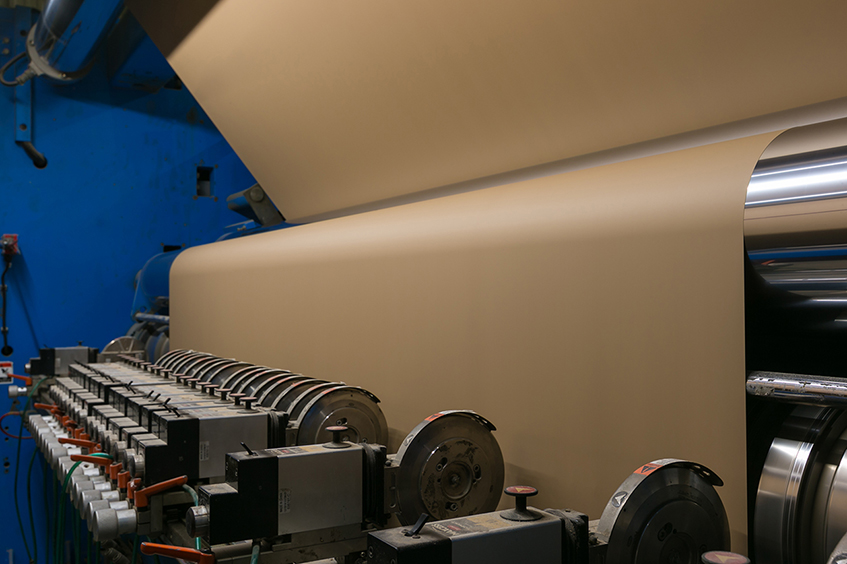Fastmarkets RISI Viewpoint: A brief look at the GCC antidumping duties on
containerboard
BRUSSELS, April 11, 2019 (Viewpoint) – By Gleb Sinavskis, Economist, European
Paper Packaging, Fastmarkets RISI
On March 31, the Gulf Cooperation Council’s (GCC) Bureau of Technical Secretariat
of Anti-Injurious Practices in International Trade (GCC-TSAIP) imposed antidumping
duties on fluting and uncoated testliner exports from Spain and Poland, starting
May 1, 2019, for a period of five years. There are six trade codes mentioned, with
recycled liner and recycled fluting below 105 g/m2 exempted. The final dumping
margin as a percentage of the CIF value has been determined to be 24.6% for
imports from Spain by SAICA and 31% for other Spanish companies and 34% for
Polish exporters.
Which companies will potentially be affected? First, of course, is SAICA, which was
specifically mentioned in the official letter from GCC. Other companies with
significant fluting and recycled liner capacity in Spain and Poland include Mondi,
Smurfit Kappa Group, DS Smith and Stora Enso.
The GCC consists of Saudi Arabia, Kuwait, United Arab Emirates, Oman, Bahrain
and Qatar. Looking at the overall GCC uncoated containerboard trade balance with
Europe, including Russia and Turkey, there was about a 200,000 tonne import
deficit for 2018, with very little volume coming from GCC to Europe. The majority of
exports from Europe in 2018 were recycled containerboard, with only about 50,000
tonnes of virgin containerboard. In the largest export category, recycled linerboard,
out of 135,000 tonnes of overall imports, Spain accounted for 50,000 tonnes.
However, the above information is just a snapshot of the yearly figures. More
important are the dynamics we have seen through the years. Exports from Europe
to GCC were about 440,000 tonnes in 2016. They declined to 330,000 tonnes in
2017 and 220,000 tonnes in 2018 due to tighter markets in Europe. Most of the
volume reduction was done by the top exporting countries, with the top spot on the
exporter list remaining unchanged (Spain, Germany, Sweden and Finland for each
grade). For example, Spanish recycled liner exports decreased from 106,000
tonnes in 2016 to 77,000 tonnes in 2017 and 50,000 tonnes in 2018.
What did this mean for market prices in GCC? With less available import supply,
containerboard prices in GCC region soared. But following the weaker global and
European demand, the situation has started to change in the second half of 2018.
European producers, after seeing higher inventories and weaker demand in their
domestic market, started shipping at monthly levels not seen since 2016. In 2016,
containerboard exports to GCC were about 30,000-40,000 tonnes per month, but
had reduced to 10,000-15,000 tonnes by the second quarter of 2018. However,
shipments in November 2018 were 23,000 tonnes and reached almost 30,000
tonnes in December. With the increasing volumes, recycled containerboard prices
in the GCC plummeted, with some reports indicating export prices of less than
€300/tonne, which is close to cash cost for many European mills.
The duties involve only specific codes, namely fluting and recycled liner grades.
However, these codes cover almost 100% of shipments in fluting and uncoated
recycled linerboard from Spain and Poland. The total export volume under these
codes from Spain and Poland was 60,000 tonnes in 2018, down from 159,000
tonnes in 2016 and 93,000 tonnes in 2017. However, the monthly shipments
indicate that volumes doubled in late 2018 compared to the summer months,
repeating the overall export story. The vast majority of the volume in this trade
code set was uncoated testliner below 150 g/m2 coming from Spain.
What does this mean for European exports to the GCC countries? The producers in
the GCC have sent a clear signal that they will not welcome the return of the high
import volumes seen before the top of the business cycle in Europe. However, will
putting duties on Spain and Poland be enough to limit import growth in the GCC
region? I don’t believe so. The oversupply that currently exists in Europe will
undoubtfully result in more containerboard exports to the MENA region, including
the GCC countries, in one way or another.
This is a prime example of how dangerous it is to rely on export trade these days,
in times of global trade wars and de-globalization rhetoric. The containerboard
market saw direct effects of this last year, following the import tariffs on US
kraftliner in China and Turkey and the decline of European exports in general that
led to a slowdown in containerboard demand at home. This GCC ruling is just
another step in this direction, and I suspect we could see more cases like this going
forward.
Gleb Sinavskis, Economist, European Paper Packaging, author of the Paper
Packaging Monitor Europe, the European Paper Packaging 5-Year Forecast and the
European Paper Packaging 15-Year Forecast, works out of Fastmarkets RISI’s
Brussels office and can be reached at +32 (0)2 536 07 41 or
[email protected].

